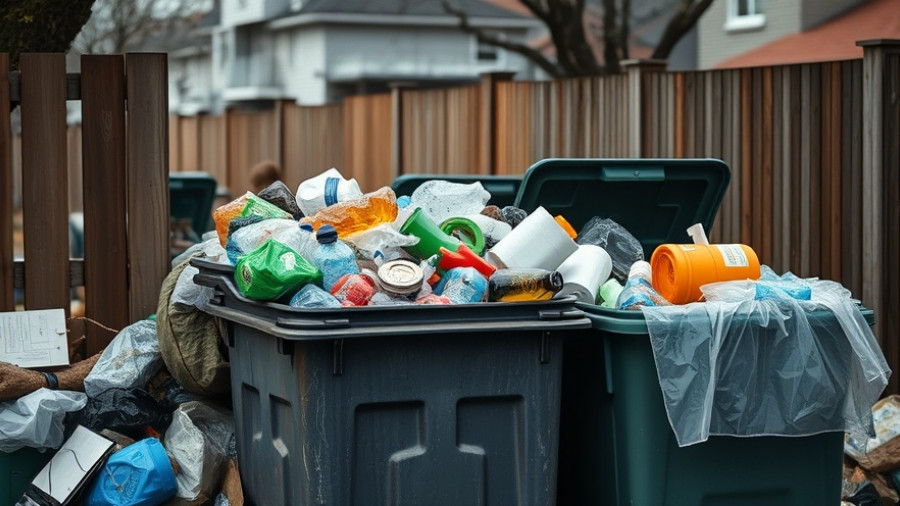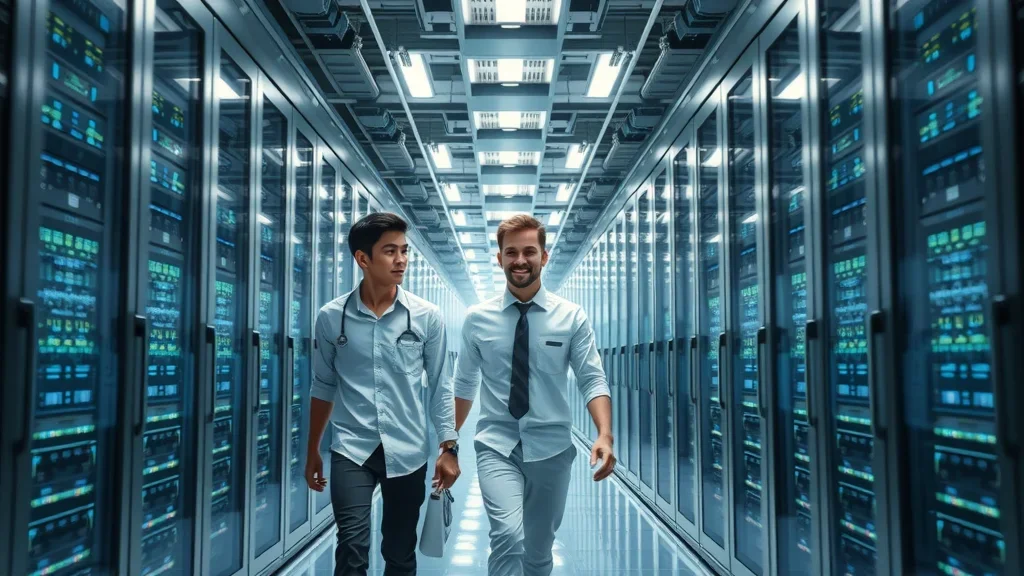Did you know that over 30% of first-time homebuyers in the U. S. qualify for zero-down or low down payment home loans? If the thought of scraping together a massive down payment has held you back from homeownership, there are innovative and proven pathways to get you the keys—without draining your savings. Whether you’re dreaming of a modern home with owned solar or want to eliminate your down payment entirely, this step-by-step guide outlines everything you need to know. Get ready to unlock the door to your new house, faster and smarter!Unlocking the Secrets: How to Buy a House With No Money DownStart With a Surprising Statistic: The Reality of Zero Down Home BuyingEvery year, millions of Americans purchase homes despite not having large amounts of upfront cash, thanks to government-backed loans, specialized lenders, and new programs. In fact, recent reports show nearly 35% of new mortgages issued to first-time buyers in 2023 required a down payment of 5% or less. This means qualifying to buy a house with no money down isn’t just a dream but an attainable reality for many. With options like USDA, VA, and solar loan programs now simplifying the process, you can go from renting to owning—without emptying your account or missing out on big tax incentives. Owning a home faster, saving on monthly costs, and maximizing your buyer pool starts with understanding these flexible zero-down products.Why More Homebuyers Are Considering How to Buy a House With No Money DownFor many, saving for a traditional 20% down payment—often tens of thousands of dollars—simply isn’t feasible. Rising home prices, higher rents, and increased living costs have pushed more buyers to research how to buy a house with no money down. With today’s lending options, first-time buyers, veterans, rural residents, and even eco-conscious homeowners can leverage government incentives, local grants, and solar loan programs to get into a home sooner. Besides immediate homeownership, zero-down programs help you start building equity while hedging against rent increases. When you couple this with owned solar or energy upgrades, you lower your monthly costs even further—making homeownership more affordable and sustainable. These innovative strategies put a home within reach for far more buyers and may expand your buyer pool if you’re planning to sell with a solar system installed.As you explore these zero-down options, it's also helpful to understand how broader economic and political factors can influence the housing and renewable energy markets. For example, shifts in government policy can impact the availability of incentives and job growth in related sectors, as discussed in how political actions threaten offshore wind jobs in America. Staying informed about these trends can help you make more strategic decisions as a homebuyer.What You’ll Learn About How to Buy a House With No Money DownKey strategies for buying a house with no money downEligibility requirements and credit considerationsPros and cons of no money down home loansAlternatives to no money down programsAction steps and resources to get startedUnderstanding the Basics of How to Buy a House With No Money DownWhat Does 'No Money Down' Really Mean When Buying a Home?When you hear about how to buy a house with no money down, it means you aren’t required to make a down payment at closing—often one of the biggest financial hurdles. Instead of saving 5%, 10%, or 20% of a home’s value as upfront cash, eligible buyers can access government-backed or specialized mortgage products that finance 100% of the home’s purchase price. However, keep in mind “no money down” doesn’t necessarily mean zero out-of-pocket costs. You may need to pay for dealer fees, closing costs, or certain home inspections. But with the right program—like a USDA, VA, or solar loan offering—these costs can often be rolled into your mortgage, covered by the seller, or offset through grants and solar incentives to reduce upfront expenses. The end result: you step directly into homeownership and start building equity—sooner.Who Qualifies? Key Eligibility Factors for How to Buy a House With No Money DownQualification for zero down home loans is determined by several factors: your credit score, income, current debt levels, and property location. For example, USDA loans are reserved for homes in rural or eligible suburban areas, while VA loans are exclusively for veterans, service members, and certain military spouses. Lenders will look at your monthly payment to income ratio, mortgage approval history, and overall financial health. Many zero down programs also incentivize energy-efficient properties or homes with a solar system installation, allowing you to unlock more value from the start. By working with a licensed agent or a reach field rep like Dan Seaman, you’ll navigate these requirements efficiently and discover additional grant or solar program options in your area.Credit Score Requirements: How to Buy a House With No Money DownYour credit score remains a crucial eligibility factor for no down payment loans. Most government-backed programs require a minimum FICO score of 620–640, though some will accept applicants with lower scores if other criteria are strong. Lenders also evaluate your credit impact, recent payment history, and existing debts. Improving your credit not only expands your buyer pool but can also lower your interest rates and monthly payment. Some solar program lenders and local grant programs set even more flexible standards. By preparing with a reach field rep or licensed agent, you’ll be better positioned to qualify for the best no money down home purchase options, especially when bundling energy upgrades or solar systems into your new home.No Money Down Mortgage Programs: How to Buy a House With No Money DownUSDA Loans: Rural Path to Buying a House With No Money DownUSDA loans open the door for moderate to low-income families to buy homes in designated rural and select suburban areas with no down payment and reduced dealer fees. Backed by the U. S. Department of Agriculture, these loans require you to meet specific income and property eligibility standards, but offer competitive rates and can often roll closing costs into the loan. USDA programs can be a perfect match if you’re drawn to country living, want to enjoy reduced operating costs, or wish to purchase a home with owned solar.VA Loans: Military Advantage for How to Buy a House With No Money DownVA loans offer unmatched advantages for veterans, active-duty service members, Reservists, National Guard, and eligible spouses. With zero down payment, no private mortgage insurance, and capped dealer fees, VA-backed mortgages make homeownership more attainable for our nation’s heroes. Added perks such as lower interest rates and flexible credit standards mean VA borrowers can purchase a home faster, especially when integrating owned solar or a qualifying energy-efficient upgrade. Working with an experienced real estate specialist ensures smooth transfer paperwork and maximizes your earned benefits.Other Government-Backed Options to Buy a House With No Money DownIn addition to USDA and VA loans, creative programs like FHA loans (with minimal 3. 5% down payments), Good Neighbor Next Door, and local down payment assistance can eliminate your down payment or cut it dramatically. Many states offer grants or solar incentives to reduce upfront cash, especially when you combine energy-efficient upgrades or a solar system installation. Many buyers also use solar loan programs in tandem with traditional mortgages to finance both their home and upgrades without extra upfront costs. These hybrid solutions mean you don’t have to choose between monthly savings and affordable homeownership—you can have both with the guidance of a licensed agent or reach field rep.Comparison of No Money Down Mortgage OptionsProgramDown PaymentWho QualifiesKey BenefitsUSDA$0Rural/Suburban BuyersNo down payment, fixed rates, dealer fees may be rolled into loanVA$0Eligible Veterans & SpousesNo PMI, low rates, flexible credit, capped dealer feesSolar Loan$0 (for solar component)Buyers opting for owned solarNo upfront cash, offsets energy bills, potential tax incentiveFHA3.5%Most First-Time BuyersLow down payment, flexible standards"Millions of Americans achieve homeownership each year with no down payment, thanks to accessible federal programs." – Mortgage Lending ExpertDealer Fees, Closing Costs, and the True Cost of How to Buy a House With No Money DownWhat Are Dealer Fees and How Do They Affect No Money Down Home Buying?Dealer fees are administrative costs charged by real estate brokers or lending institutions to facilitate the home buying process. While the dream of zero down can cloud the view, buyers must understand these fees, which can include origination charges, application fees, appraisal costs, and title insurance. For how to buy a house with no money down, you’ll need a clear understanding of what’s owed up front, what can be financed, and where grants or seller concessions may help. Working with an experienced real estate specialist is essential to avoid costly surprises. Many government programs, especially for buyers installing a solar system, may allow you to wrap dealer fees or other closing expenses into your loan. This strategy protects your monthly costs and gets you into your home faster without additional upfront cash.How to Minimize Out-of-Pocket Expenses When Buying a House With No Money DownSmart buyers often minimize cash at closing by negotiating seller credits, using local or state grants, and leveraging solar incentives to cover parts of their upfront costs. Multiple programs—including those from Reach Solar Solution—offer ways to eliminate your down payment, cover certain dealer fees, and reduce operating expenses through energy-efficient upgrades. Ask your field rep or licensed agent about rolling closing costs into your mortgage, stacking grants with zero-down loans, and tapping into savings made our mortgage more affordable strategies. With guidance, you can step into your new home with minimum cash due, while enjoying extra perks from owned solar, lower monthly payment, and increased home value over time.Origination fee ($500–$1,500)Application fee ($150–$500)Appraisal fee ($400–$800)Title & escrow fees ($800–$2,000)Prepaid taxes & insurance (varies)Solar system closing fees (if applicable)How to Use a Solar Loan for Buying a House With No Money DownUnderstanding Solar Loan Programs and No Money Down Home BuyingA solar loan allows you to finance a home’s energy upgrades without upfront cash, rolling installation costs into your overall mortgage or energy loan. If you’re interested in a home with solar, certain lenders—including Reach Solar Solution—can eliminate your down payment for the energy portion, often qualifying you for extra solar incentives and rebates that reduce monthly costs even further. Solar loans are available for both new rooftops and homes with an existing solar system installation, and may be integrated with USDA, VA, or FHA zero-down options. With the help of a licensed agent or dedicated reach field rep, you access these layered programs, maximize tax incentives, and increase your home’s long-term value and affordability.Advantages of Integrating Solar Loans With Zero Down Home PurchasesBundling a solar loan with a zero down mortgage offers triple benefits: you move in with minimal cash, your monthly energy bill shrinks, and your property’s value often increases home resale appeal. You also benefit from long-term savings stay in your pocket, as energy costs rise. Plus, with solar incentives, you could qualify for grants, rebates, or a federal tax incentive, further lowering your monthly payment. When managed through a solar program partner like Reach Solar Solution, you’re guided step-by-step—from qualifying for incentives to transfer paperwork—ensuring a seamless, affordable transition to modern, energy-smart homeownership."Solar loan integration may open even more doors for zero down homeownership while saving on energy costs." – Financial AdviserCan You Really Buy a Home With No Money Down?Debunking Myths About How to Buy a House With No Money DownDespite skepticism, the answer is: Yes, you really can buy a house with no money down. This isn’t a financial trick or too-good-to-be-true. It’s made possible by robust federal, state, and solar loan programs designed to expand homeownership. Still, it’s important to know what true “zero down” covers, which expenses can be financed, and what upfront cash (if any) is required at different steps.Key Considerations Before Pursuing How to Buy a House With No Money DownZero-down buying isn’t for everyone. Review your income, debt, career stability, and readiness for homeownership. Evaluate monthly payment adjustments if interest rates rise, and check loan-specific requirements, including credit impact and property eligibility. Make sure to connect with a licensed agent or reach field rep to assess all programs—including energy and solar incentives—to keep out-of-pocket costs low and reduce long-term risk.Answer: The Reality of Buying a Home With No Money DownThe reality is that government-backed and innovative programs—like those offered by Reach Solar Solution—are broadening access to homeownership. With proper planning and guidance, you can achieve homeownership with low to zero down, taking advantage of solar incentives, reduced dealer fees, and increased energy savings. Now you can start building your future, not just paying monthly rent.Is $10,000 Enough to Put Down on a House?Evaluating Down Payment Requirements for How to Buy a House With No Money Down$10,000 can go a long way if you’re utilizing zero or low down payment options. For USDA and VA loans, you may need little to nothing for your down payment, allowing your funds to be used toward dealer fees, closing costs, or moving expenses. For FHA borrowers, that amount may cover the minimum required and even some upfront costs if negotiated credits or grants are applied. When paired with solar loan programs, $10,000 could fully cover your new solar system’s installation or upgrades, making energy savings immediate.Creative Solutions for Homebuyers With Limited FundsIf you’re short on funds, look beyond the traditional routes. Explore state and local down payment assistance, employer grants, IDA accounts, or even “gift funds” from relatives. Many solar programs and energy upgrade initiatives also offer no upfront cash requirements, instead tying payments to utility bill reductions or monthly savings. Creative stacking of grants, solar incentives, and negotiated credits can bring closing costs near zero—making your $10,000 stretch further with the guidance of a field rep or licensed agent.Answer: Making $10,000 Work When Buying a HouseEven if you don’t go fully zero down, strategic use of $10,000 can unlock qualifying deals, pay off dealer fees, and fund a new solar system for fast return on investment. The right mortgage, paired with available solar programs, can maximize your options and bring homeownership within budget.What Credit Score Do You Need to Buy a House With No Money Down?Understanding Credit Standards for No Down Payment MortgagesMost how to buy a house with no money down programs require a minimum FICO credit score between 620 and 640, but some options, especially VA loans or certain solar loan programs, may accept slightly lower scores. Your recent credit impact, history of on-time payments, debt-to-income ratio, and stability all play roles. Specialized lenders—in partnership with Reach Solar Solution—may offer coaching to boost your score rapidly so you can qualify for zero-down opportunities even sooner.Tips to Improve Your Credit Score for How to Buy a House With No Money DownPay down existing balances, dispute any credit report errors, avoid new debt, and be sure to pay all accounts on time. If your score needs a lift, connect with a field rep or credit specialist to develop a step-by-step plan. Improving your score not only expands your buyer pool but can decrease your monthly payment, reduce dealer fees, and ensure easier mortgage approval for your next home—with or without a down payment.Answer: The Minimum Credit Score for No Money Down Home BuyingMost zero-down mortgage programs target a score of 620 or above. However, with the right energy or solar program partnership, you may still step into homeownership with less—especially if you bring additional strengths like stable income or a strong rental history to the table.How Much House Can I Afford If I Make $36,000 a Year?Income Guidelines for Buying a House With No Money DownIf you make $36,000 a year, your maximum affordable mortgage typically ranges from $100,000 to $150,000, depending on your debts, credit score, and loan program. USDA and FHA set income limits for eligibility, while solar loan and energy upgrade programs may allow for additional qualifying flexibility, especially if the home’s monthly costs are lowered with solar or HVAC updates. The key is to keep your monthly payment—including mortgage, taxes, insurance, and dealer fees—at or below 30% of gross income for financial comfort.DTI and Affordability Factors to ConsiderDebt-to-income (DTI) ratio is a major consideration. Lenders usually prefer a DTI below 43%, which means all your monthly debts—including your new home loan—should not exceed $1,290 a month. If your DTI is too high, consult a licensed agent or field rep to find alternative programs, consolidate debt, or include solar incentives to reduce your overall monthly outflow and widen your affordable buyer pool.Answer: Calculating Your Budget for a Home With No Down PaymentYour affordability depends on your unique situation, but with the right zero-down program and energy-saving strategies, you could own a comfortable home—potentially with owned solar—on a $36,000 salary, if you keep long-term costs in check and make smart use of grants and incentives.Step-by-Step Guide: How to Buy a House With No Money DownAssess your eligibility and identify the right no down payment program (USDA, VA, solar loan, or state grants).Check and improve your credit score for better monthly payment and approval options.Shop for lenders who specialize in zero down or solar program home purchases.Factor in dealer fees, closing costs, and explore grants or energy incentives to reduce upfront cash needs.Get pre-approved by a lender and start house hunting within your budget.Close your new home—with zero down!Key Takeaways: How to Buy a House With No Money DownMultiple programs and creative strategies enable home buying with no down paymentCreditworthiness and income are crucial factorsConsider additional fees and seek guidance from professionalsFrequently Asked Questions About How to Buy a House With No Money DownAre there income restrictions for no money down loans?Yes, many zero down programs—such as USDA loans—have income limits based on geographic area and household size. These are designed to benefit buyers who might otherwise be priced out of the market. For other programs like VA and solar loans, the restrictions may be less stringent, but lender guidelines still apply.Can first-time buyers really qualify for zero down programs?Absolutely! First-time buyers are among the primary beneficiaries of government-backed zero down loans. From FHA and USDA to state grant programs and solar incentive programs, first-time homebuyers are often eligible for eliminate your down payment offers and more flexible terms designed to get you into a home faster.What are the risks of buying a house with no money down?The main risks involve taking on more debt and potentially higher monthly payments. With little equity at closing, you may face challenges selling if market values drop. That’s why it’s vital to review loan terms, compare solar or energy program options, and work with a knowledgeable licensed agent or field rep every step of the way.How soon can I move into my new home after approval?Once your loan is approved and closing is complete, you can typically move in within days. The process timeline is rarely any longer than a traditional loan—sometimes faster—especially with guidance from a field rep or experienced real estate specialist.Ready to Buy Your New Home With Zero Down?Explore Today’s No Money Down Home Buying Opportunities with Reach Solar Solution: https://reachsolar.com/seamandan/zero-down-homesTake action now: See if you qualify and buy your new home with zero down or a bundled solar program. Your savings, equity, and dream home are just steps away!If you’re inspired to take the next step toward homeownership, remember that understanding the broader landscape—such as how policy changes can affect renewable energy incentives and job markets—can give you a strategic edge. Exploring topics like the impact of political actions on offshore wind jobs in America can help you anticipate shifts that may influence your home’s value or the availability of green financing. By staying informed and proactive, you’ll be better equipped to make confident, future-focused decisions as you embark on your journey to owning a home with zero down.SourcesHUD: Buying a Home – https://www.hud.gov/program_offices/housing/sfh/buyingUSDA Rural Housing Programs – https://www.usda.gov/topics/rural-housingVA Home Loan Program – https://www.va.gov/housing-assistance/home-loansDOE: Solar Energy Loans & Incentives – https://energy.gov/eere/solar/solar-energy-loans-and-incentives

 Add Row
Add Row  Add
Add 




Write A Comment